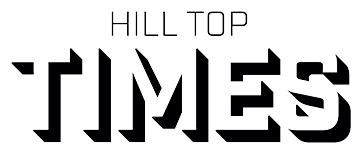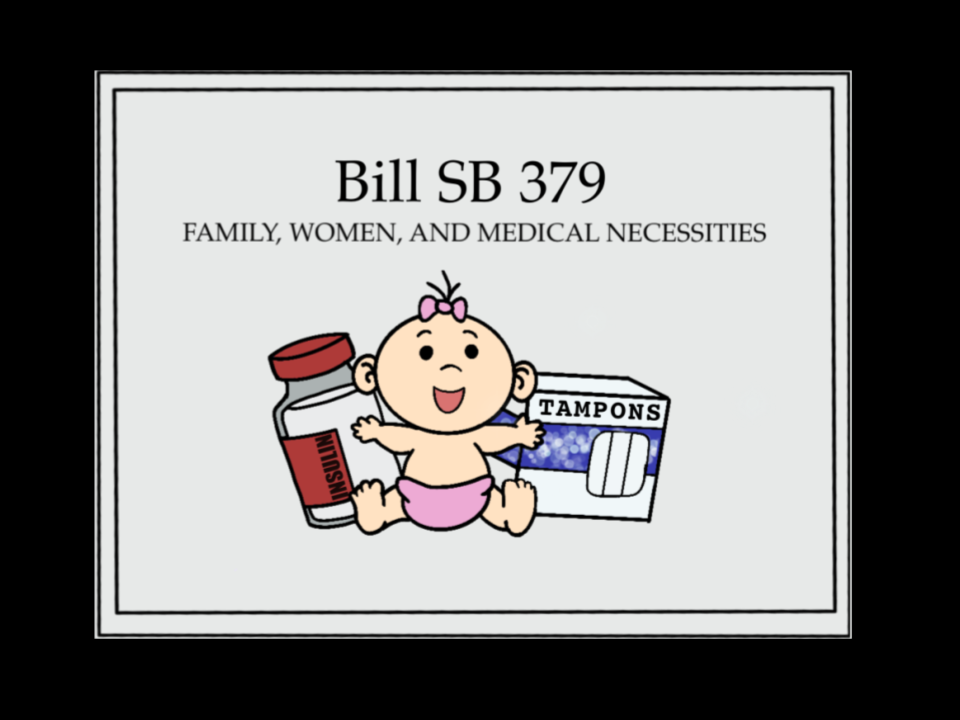As of June 2023, 21 states, including Texas, charged sales tax on period products, marking them as luxury goods. However, this is about to change. In contrast with the overturning of Roe v. Wade in June 2022, women’s rights activists are pressing for a higher priority bill to support women and families across the United States.
In 2022, Texas State Rep. Donna Howard, D-Austin, filed a bill under HB70 that called for a “sales and use tax exemption for certain feminine hygiene products.” The bill went into effect on Friday, Sept. 1 and will provide tax relief on the purchase of menstruation products, wound dressings and ‘family care items’ such as baby wipes, bottles and breast pumping devices.
“I think it’s a good change to have, especially since Roe v. Wade went down, and we have very strict abortion laws in Texas now,” senior HOSA president Bindu Upadrashta said. “It’s a good way to help women out.”
Houstonians and founders of the Texas Menstrual Equity Coalition, 20 year old Sahar Punjwani and 18 year old Zoe Kass are among the young leaders in the fight for the eradication of the ‘tampon tax.’ The pair traveled to the state capitol and talked about their periods in order to destigmatize menstruation and indicate the importance of tax-free care items. Punjwani also wrote to the House Committee on Ways and Means, which has the responsibility to raise money required to finance the Federal Government.
“I think it’s so encouraging to see young people recognizing the power of their civic engagement and taking it seriously, and coming in and talking about an issue that sometimes is stigmatized,” Howard reported to KXAN News in June. “I’ve been extremely proud of these young women in what they’ve done and I think it’s going to bode well for the future of their civic engagement — they’re going to see that what they’ve done has made a difference, and it’s been incredible to watch.”
Minnesota became the first state to exempt all health products from taxes in 1981, leading the nation in a decades-long fight for menstrual equity. Since then, 24 more states have successfully passed similar bills. These actions help to relieve period poverty, or lack of access to necessary menstrual products and feminine hygiene education. According to the World Bank, approximately 500 million people don’t have access to adequate and affordable products and facilities.
“At other schools I’ve worked at, we’ve had local diaper banks provide pads and tampons so girls don’t have to miss school if they don’t have any,” Nurse Nichole Warren said. “We are aware that not all girls have menstrual products even though they need them, so we always have some in the clinic and house offices. That way they don’t have to miss school.”
According to a study conducted by Yale University, families spend $100 on diapers per child monthly. Additionally, one in four parents reported having to miss work due to the lack of needed diapers. With the rising cost of living come amplified levels of diaper and period poverty, as many are forced to prioritize other necessities such as heating.
“It’s good to feel covered– financially and literally– and the removal of taxes could mean the difference between buying one or two packs of diapers,” Warren said.
As infants cannot be dropped off at child care centers without diapers, parents and caregivers are often forced to stay home, causing them to miss on average 5.1 workdays in 30 days. According to the National Diaper Bank Network, this amounts to a loss of $296 per month for an individual earning the federal minimum wage of $7.25 per hour.
“It will help the economy, with inflation being as much as it is and the tax now being less on those things, we will most likely be able to give more money for families to spend on other things,” family consumer science teacher Holly Sanchez said. “It’s going to be easier on the average household now, especially with inflation.”
In most of the classes for family/growth and development, particularly Sanchez teaches American psychologist Abraham Maslow’s hierarchy of needs. “Human needs arrange themselves in hierarchies of pre-potency,” CNN said Maslow wrote in the 1943 paper, A Theory of Human Needs/Motivation, in other words, the hierarchy’s structure depicts numerous levels of necessity in human life.
“The first level of Maslow’s needs is the basic physical needs; food, water, or any kind of needs to be successful in class,” Sanchez said. “I think that should be available in the school because if those students don’t have those things then all they’re thinking about during their class period is ‘I’m hungry,’ ‘I’m thirsty,’ or ‘I need a female product and I can’t get it.’”
The bill is anticipated to cost the state of Texas $227 million in general revenue over the next two years. A portion of this budget was previously dedicated to the Tax Reduction and Excellence in Education Fund. As a result, the government must withdraw from another source in order to fund the lost $8 million for the 2024-2025 biennium.
“I read about it costing the state of Texas a bunch of money,” Upadrashta said. “So it might hurt the economy a little bit, but that’s just the price we need to pay to ensure that women are safe and that they’re protecting their health and their bodies.”












![A digitally constructed image shows money flowing out of a U.S. government building, representing the economic impact of the Trump administration’s new tariff policy. “[The tariffs are] supposed to basically pump up American businesses to where Americans go buy American products,” U.S. government teacher Adam Barclay said. “Then you have more manufacturing, you have more jobs, and that's how it's supposed to work.”](https://rockhillmedia.org/wp-content/uploads/2025/04/Impact-of-the-U.S.-Tariffs-1-1200x675.png)



